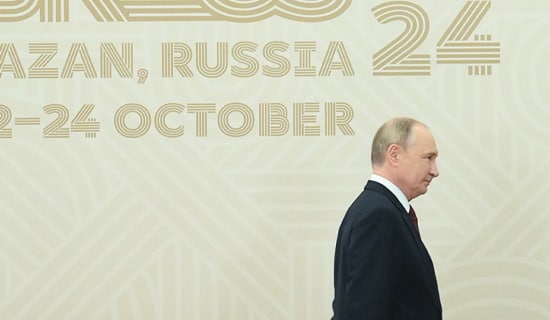A recent book by Muhammad Kamal Mustafa, the imam of a mosque in southern Spain, has sparked controversy in that country. The book, 'Women in Islam,' describes how men should beat their wives, citing the Koranic verse: "And [as to] those on whose part you fear disobedience, admonish them, expel them from the bed, and beat them [ 4:34]."
Othman Al-Rawwaf, a Saudi columnist for the London-based Arabic-language daily Al-Sharq Al-Awsat, criticized the Spanish imam and other intellectuals who argue that the problem is not wife-beating, but the way in which it is presented to the West. The following are excerpts from Al-Rawwaf's article: [1]
Discussing Wife-Beating with Non-Muslims
"…I read an article… that criticized the [Spanish imam] for presenting a distorted picture of Islam regarding the issue of wife-beating. [The critic said that] it would have been better to speak about the fact that Islam instructs us to be gradual [about wife-beating] – namely, first we are instructed to admonish the wife [for her disobedience, and if that doesn't work] to expel her from the bed, and only if that doesn't work either, to beat her. [It would have been better also to recall the fact that] Abdallah bin 'Abbas ruled that the beating must be performed with a toothpick or a handkerchief. The critic concluded that such books serve the conspiracies of the enemies of the Muslim nation.
"With all the respect I have for this Islamic critic… and despite my knowing how hard he strives to explain the true Islam to non-Muslims, and especially to the West, the issue of women in Islam and the way in which Muslims and non-Muslims perceive the relationship between men and women in Islam is a complicated issue that must be dealt with seriously [and substantively] by thinkers in the Islamic world.
"Wife-beating cannot be explained in terms of necessity and non-painful methods when speaking with non-Muslims, and even with many Muslim women… A few years ago, I participated with a group of Arab and Muslim academics in a symposium on Islam and the West, hosted by the University of Washington in Seattle.
"In the follow-up discussion to a research presentation, one of the university professors, who identified himself as a Turkish Muslim, posed a question for the Muslim lecturers. He asked their opinions on wife-beating in Islam. The [participating] Shari'a experts gave various answers, some of them explaining the reasons and justifications for wife-beating. When one of the professors of Shari'a used his pencil [to demonstrate], tapping his hand lightly and explaining to those present, 'Such is wife-beating in Islam, light and not painful,' cries of laughter and astonishment broke out in the hall..."
Justifications and Explanations are Unacceptable to Westerners
"Such justifications and explanations are unacceptable, because Western intellectuals are fundamentally opposed to the very principle of wife-beating. The best answer I heard from one of the Muslim lecturers at that symposium was not an attempt to explain or justify wife-beating; rather, he merely said that wife-beating in the U.S. is far more prevalent than in any Islamic society.
"At a conference of the Middle East Studies Association of North America (MESA), held in Washington a few years ago, I saw a group of young Muslim women handing out [a copy of] a Fatwa issued by a Muslim cleric living in Canada, who said that men are forbidden from beating women. At that same conference, I heard an Afro-American Muslim woman… demand that Muslim clerics ban wife-beating, on the same religious grounds as the ruling banning slavery in Islam…
"How is equality among people possible if there is no equality between women and men? How can there be equality between men and women when men think that religious law permits them to beat their wives?… Extremism and terror are transient occurrences in Islamic society, and will not last long. In contrast, the women's issue will continue to exist, because its social roots are ancient and it must be addressed thoroughly."
Women Demand a New Interpretation of Shari'a
"The issue of women in Islam should not be addressed because the West and international human rights organizations demand equality between men and women in the Muslim world, but because it is a need in Muslim society. Social, political, and economic needs demand that the problems of women in the Islamic world be addressed. Islamic societies suffer many financial losses because half their financial and human resources [i.e. women] are neutralized or not used in the best possible way.
"To begin addressing the problem of women in Islamic countries, we must first of all recognize that the problem exists, and not delude ourselves into thinking that the situation of women in our Islamic societies is better than in other societies. It is true that Shari'a granted rights to Islamic women that are not enjoyed by Western women to this day. But everyday acts in some Islamic societies have turned these rights into conditional rights.
"I have heard this statement from an increasing number of young Muslim women who speak at international conferences and demand a new interpretation of religious law texts regarding women. Some, like Dr. Rifat Hassan, a lecturer at the University of Louisville, believe this difficult mission cannot be properly accomplished unless Muslim women themselves carry it out. Therefore, some of the new female Muslim intellectuals call on Muslim women to become experts in Islamic law in order to understand the correct Islamic position regarding women. They demand Islamic religious rulings following the path of Aisha, the wife of the Prophet Muhammad. At conferences, I have heard some young Muslim women quoting Aisha, who was opposed to the Hadith portraying women negatively, and offered an alternative interpretation.
"This demand for a new interpretation regarding women in Islam, as produced by the Aisha school of thought – if one can call it that – must gain special importance in the Islamic world and must get the attention of clerics. These cannot be dismissed as a [Western] plot to destroy the morals and values of Muslim women. When five veiled Muslim women stand up at an international conference – the first Canadian of Lebanese origin, the second Afro-American, the third a businesswoman from Malaysia, the fourth a Tunisian Frenchwoman, and the fifth an Egyptian student – and demand reform in religious law regarding women in Islam, it is impossible, in my opinion, to ignore this demand or to assume it is an anti-Muslim act… The traditional Islamic institutions have forsaken them, and they have been forced to turn to international conferences on religious law to express their ideas.
"Will Muslim clerics listen to the voices demanding reform in religious law regarding women?"
[1] Al-Sharq Al-Awsat (London), August 25, 2003.





